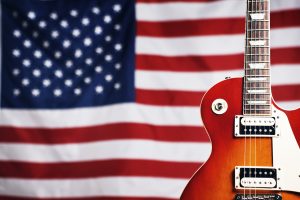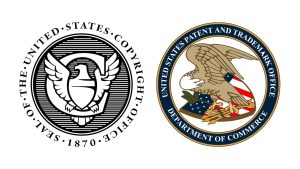After years of contractual entanglements, public disputes and strategic reinvention, Taylor Swift has achieved something few global recording artists have: She now owns the master recordings of her entire musical catalog.
Articles Posted in Intellectual Property
Strange Bedfellows on the Campaign Trail: The Tension between Music, Copyright and Political Licensing Agreements
 Moments before former President Donald Trump took to the stage at a Montana rally this August, Celine Dion’s 1997 hit, “My Heart Will Go On,” blasted over the speakers while a clip appeared onscreen. It took less than 24 hours for the five-time Grammy winner’s team and Sony Music Entertainment Canada to issue a statement on social media saying that “in no way is this use authorized, and Celine Dion does not endorse this or any similar use.” Amid a heated political season, it’s not unusual for candidates to clash with the artists whose music they promulgate on the campaign trail. In Trump’s case, though, using a video compounded the legal complications. While political licensing for music typically needs approval from the recording artist, video playback requires approval from both the artist and composer. In theory, this fact would make it less risky for campaigners to stick with audio-only soundbites of their favorite crowd-pumping tunes. However, there are still questions around general music licensing dos and don’ts when it comes to politics, even as performing rights groups work to clarify things. For now, the intersection of artists’ rights and political campaigns remains a murky legal crossroads, at best.
Moments before former President Donald Trump took to the stage at a Montana rally this August, Celine Dion’s 1997 hit, “My Heart Will Go On,” blasted over the speakers while a clip appeared onscreen. It took less than 24 hours for the five-time Grammy winner’s team and Sony Music Entertainment Canada to issue a statement on social media saying that “in no way is this use authorized, and Celine Dion does not endorse this or any similar use.” Amid a heated political season, it’s not unusual for candidates to clash with the artists whose music they promulgate on the campaign trail. In Trump’s case, though, using a video compounded the legal complications. While political licensing for music typically needs approval from the recording artist, video playback requires approval from both the artist and composer. In theory, this fact would make it less risky for campaigners to stick with audio-only soundbites of their favorite crowd-pumping tunes. However, there are still questions around general music licensing dos and don’ts when it comes to politics, even as performing rights groups work to clarify things. For now, the intersection of artists’ rights and political campaigns remains a murky legal crossroads, at best.
Steal My Idea, I Dare You: The Power of Protecting Your Intellectual Property
In the cutthroat arena of business, where ideas spark revolutions, the protection of intellectual property (IP) is not just a legal formality—it’s a survival strategy. Imagine a world where your groundbreaking ideas, painstakingly nurtured, are snatched and claimed by others. This isn’t just a hypothetical scenario; it’s a real threat that underscores the power of IP protection.
The U.S. Copyright Office and USPTO Announce a Joint Study on NFT-Related IP Issues
 Yesterday, the U.S. Copyright Office (USCO) and U.S. Patent and Trademark Office (USPTO) announced a joint study on IP issues related to NFTs. This follows a Congressional request by senators Leahy and Tillis that the Offices explore these issues. Today, the Offices will publish a Notice of Inquiry (unpublished version can be found here), with a notice-and-comment period to follow, seeking stakeholder/private industry feedback on the following topics:
Yesterday, the U.S. Copyright Office (USCO) and U.S. Patent and Trademark Office (USPTO) announced a joint study on IP issues related to NFTs. This follows a Congressional request by senators Leahy and Tillis that the Offices explore these issues. Today, the Offices will publish a Notice of Inquiry (unpublished version can be found here), with a notice-and-comment period to follow, seeking stakeholder/private industry feedback on the following topics:
Best Practices and Brand Exclusives: NFTs and Community Building in the Metaverse
 We’ve written extensively on the still somewhat recent arrival of non-fungible tokens (NFTs) as both a potential revenue stream, caveat-filled investment destination and pop culture marker of the moment. Back in 2018, we wrote about the Los Angeles Dodgers giving away digital bobbleheads to fans, who could redeem a private hidden key to send the bobblehead to a personal cryptocurrency wallet or sell the unique serialized bobblehead to another fan. Later, we wrote about NFTs in the art world, from a burned Banksy to the record-setting sale of Beeple’s Everydays – The First 5000 Days, which sold for $69.3 million (including fees). Increasingly, the practical uses of NFTs are being examined in places beyond entertainment and IP portfolios, including the real estate market. Recently, Spanish airline Air Europa even sold the first NFT plane ticket, called a “NFTicket,” for just over $1 million.
We’ve written extensively on the still somewhat recent arrival of non-fungible tokens (NFTs) as both a potential revenue stream, caveat-filled investment destination and pop culture marker of the moment. Back in 2018, we wrote about the Los Angeles Dodgers giving away digital bobbleheads to fans, who could redeem a private hidden key to send the bobblehead to a personal cryptocurrency wallet or sell the unique serialized bobblehead to another fan. Later, we wrote about NFTs in the art world, from a burned Banksy to the record-setting sale of Beeple’s Everydays – The First 5000 Days, which sold for $69.3 million (including fees). Increasingly, the practical uses of NFTs are being examined in places beyond entertainment and IP portfolios, including the real estate market. Recently, Spanish airline Air Europa even sold the first NFT plane ticket, called a “NFTicket,” for just over $1 million.
News of Note for the Internet-Minded (4/19/22) – IP and NFTs, Virtual Reality & Ransom(every)ware
Web Scraping Watch: Cases Set to Clarify Application of the Computer Fraud and Abuse Act
 For years, website owners have leveraged the federal Computer Fraud & Abuse Act (CFAA) as a tool to combat unauthorized scraping of data and other content from their websites. Due to a circuit court split on the interpretation of the CFAA’s “exceeds authorized access” provision, there has long been a legal gray area around the widespread practice of web scraping and whether scraping data from publicly accessible websites can give rise to liability under the CFAA. A set of closely watched, high-level court cases, however, may soon offer some long-awaited clarification on the reach of the CFAA to web scraping.
For years, website owners have leveraged the federal Computer Fraud & Abuse Act (CFAA) as a tool to combat unauthorized scraping of data and other content from their websites. Due to a circuit court split on the interpretation of the CFAA’s “exceeds authorized access” provision, there has long been a legal gray area around the widespread practice of web scraping and whether scraping data from publicly accessible websites can give rise to liability under the CFAA. A set of closely watched, high-level court cases, however, may soon offer some long-awaited clarification on the reach of the CFAA to web scraping.
A NFT Primer on Potential IP Ownership Legal Issues
Carolyn Toto recently joined host Joel Simon on his Industry Insights podcast continue the discussion of non-fungible tokens, related IP ownership issues and more.
Joel Simon: Our discussion today is part of a series on non-fungible tokens, known as NFTs. We will take a look at some specific issues that are somewhat unique to NFTs, and try to give you, our listeners, some interesting things to watch out for as you wade into this relatively new space. Carolyn, with the large sums of money involved in many NFT transactions, due diligence and proper transaction execution must be critical factors, yet I’ve heard about buyers getting tripped up on things that, once you hear about them, seem obvious. Can you shed some light on this for us?
The People Have Spoken. Chappelle Is Back!
 On November 24, 2020, Dave Chappelle posted his “Unforgiven” stand-up set to Instagram and publicly called out Viacom and Comedy Central over the streaming rights and revenues from his early-2000s hit, Chappelle’s Show. As we previously explained, rather than litigating what seemed to be Viacom-friendly contract language, Chappelle was taking the issue to “his real boss”—his fans—by calling for a boycott of the show on two major streaming platforms: Netflix and HBO Max. By the end of 2020, both platforms had taken the show down. Chappelle hoped to use the boycott as leverage to renegotiate a better deal.
On November 24, 2020, Dave Chappelle posted his “Unforgiven” stand-up set to Instagram and publicly called out Viacom and Comedy Central over the streaming rights and revenues from his early-2000s hit, Chappelle’s Show. As we previously explained, rather than litigating what seemed to be Viacom-friendly contract language, Chappelle was taking the issue to “his real boss”—his fans—by calling for a boycott of the show on two major streaming platforms: Netflix and HBO Max. By the end of 2020, both platforms had taken the show down. Chappelle hoped to use the boycott as leverage to renegotiate a better deal.
Dave Chappelle Wants You to Boycott … Dave Chappelle?
 Just before Thanksgiving, Dave Chappelle posted to his Instagram account an 18-minute stand-up set titled “Unforgiven.” As expected, Chappelle’s fans ate it up, and the original video has been viewed more than six million times in the two weeks since its posting. Chappelle opens the set sharing stories and lessons learned from his start in comedy at the age of 14 before turning to a very public airing of grievances with Viacom over the streaming rights to the early-2000s Comedy Central hit Chappelle’s Show, which Viacom owns and had recently started streaming on both HBO Max and Netflix.
Just before Thanksgiving, Dave Chappelle posted to his Instagram account an 18-minute stand-up set titled “Unforgiven.” As expected, Chappelle’s fans ate it up, and the original video has been viewed more than six million times in the two weeks since its posting. Chappelle opens the set sharing stories and lessons learned from his start in comedy at the age of 14 before turning to a very public airing of grievances with Viacom over the streaming rights to the early-2000s Comedy Central hit Chappelle’s Show, which Viacom owns and had recently started streaming on both HBO Max and Netflix.
 Internet & Social Media Law Blog
Internet & Social Media Law Blog



